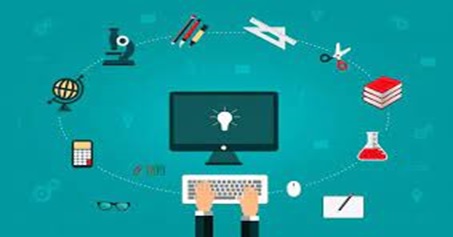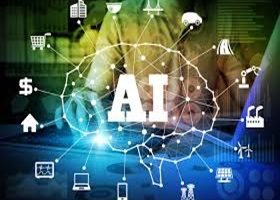
BY MENGISTEAB TESHOME
Over the past several years, Artificial Intelligence technologies (AI) have started changing our daily lives. Innovations are rolled out at an accelerated pace, not only in professional working environments but also at home and in schools.
The competition in using AI among nations is getting fierce because the return is rewarding. The sectors, transaction, health, agriculture, trade, commodity exchange and the whole industry are consumed by Artificial Intelligence to attract business, make life easier and add value as well as increasing satisfaction to customers.
According to Global Information Society Watch, despite the lack of an enabling environment, the Artificial Intelligence sector has been a growing phenomenon in Ethiopia over the last five years, with various reports indicating the country is becoming a thriving center for AI research and development including robotics.
Ethiopia, as part of its commitment to advance science and technology sector; and digital transformation endeavors, recently the country inaugurated the first state-of-the-art Science Museum in Addis Ababa.
The Ethiopian Herald, to learn about the impact of the newly inaugurated Science Museum on the education system, improving the outcomes of learning and how it assists students to adapt to AI at their early childhood education, approached Abebe Chernet, Addis Ababa City Government Education Bureau Public and Communication Directorate Director.
As to him, the AI Science Museum has lasting impact in nurturing the posterity – to build their understanding about AI, develop their learning activity and aptitude, and make them critical thinkers aside from enhancing the quality of education that the nation is striving for.
What is more, AI science museums let the students get first hand practical experiences for the reason they are equipped with state of the art in puts. Furthermore, this year’s academic curriculum incorporates Information Technology and computers to be offered to students starting from primary level of education, the AI science museum will serve as center for resources.
Some of the advantages AI brings is, it provides easy access to information, impacts the teaching and learning environment of schools, provides global connection and learning aid, respectively and beyond. Students who pass through these all exposures will be creative and the facilities like the science museum brings practical exposure to the new blood.
“Families and schools should bring students to the AI Science Museum center. In the museum, they could touch and operate which in turn inspires and lets children and young students attach themselves to master it.”
Addis Ababa City Government Education Bureau is working with all private and public schools to motivate them to bring the students to the AI museum.
Not only this; but AI innovation also brings about economic benefits by the creation of new job streams. Higher education as well as the primary and secondary schools are duty bound to familiarize their students through practical engagements; and the newly science museum could give the opportunity in this regard.
“It is the right time to cultivate the human capital in the fields of Science, Technology, Engineering and Math (STEM) and make Ethiopia hub of AI in Africa; and role model to the rest of Africa,” he remarked.
Prof. Tommy Meyer, Computer Science Teacher and Researcher at the Center for Artificial Intelligence at the University of Cape Town, South Africa was one of the invited academicians and deliberated a paper in relation to AI at the Science Museum. As to him, the priority given by Ethiopia to expedite technological infrastructures in the country will help to find ways in addressing African problems through African digital solutions.
Technological and digital transformation is not something to be left for the next generation, but needs to be started today, developed through time, he said.
He further noted that children and youth should be trained in the field so that they can grow with being able to understand what Artificial Intelligence is.
In this regard, science and technology museums like the one Ethiopia has built could play a great role in cultivating youth who are well informed about AI, Prof. Meyer said.
He also explained that it is not possible to solve Africa’s problems in a sustainable way with directly applied technologies imported from other countries. Therefore, “We need African Artificial Intelligence and other digital options for Africa’s problems,” he stressed.
As to him, making this a reality is the next big homework of African countries.
He mentioned that Ethiopia is carrying out exemplary technological infrastructure constructions in a short period of time.
The Ethiopian Artificial Intelligence Institute, which was established two years ago, is doing its part to bring together African scholars and researchers in the field, Prof. Meyer remarked.
Director General of Ethiopian Artificial Intelligence, Engineer Warku Gachna on his part said that Ethiopia’s focus on technology development, including telecom infrastructure, will create opportunities for digital transformation.
The country will work to expand service delivery assisted with digital technology by creating favorable conditions, he said.
He also affirmed that Ethiopia is committed working closely with African countries, especially in the field of artificial intelligence.
The journalists drawn from different African countries, including from Ghana, Cameroon, South Africa and Niger also visited the recently inaugurated Ethiopian Science Museum.
As to the journalists, the Museum will change the erroneous narratives against Africa.
Rwandan Journalist Johnson Canmujere told to local media that the museum shows Africa’s current position and its future aspiration in science sector.
“In my view, this is a step in the right direction as we want to see in the future and going forward; we want to see Africans thinking of the western while going out of the continent to outsource solutions.”
“That is basically what I see; and as an African writer and journalist this tells me that I need to amplify this story and give space for African scientists, innovators and anyone in the science field as such we talk of the continent as not miserable, it is all about conflict and we can’t help ourselves,” he elaborated.
He added that Ethiopia has self-reliantly started its journey of development and prosperity through scientific innovations.
The museum is instrumental to avert the false narrative of portraying Africa with conflict and poverty and maintain the reality that it is a beacon of hope.
South African Journalist, Simi Aref expressed that Ethiopia’s experience in this regard should be expanded across the continent. “Africa is a hub of technology. I think there is a lot of technology and tech minds in Africa and this should be reported more throughout Africa. I think museums like this and exhibitions help showcase all our talents,” he noted.
African Union Communication Head, Wynne Musabayana said that the museum is an eye opener for Africans. “In the African Union we have a communications function and the aim is to reframe the narrative about Africa and what the world knows about Africa.
So being here at this fair has really shown us the progress that Africa is making, especially in terms of the youth of technology and artificial intelligence (AI) in particular.
“We have seen some displays from the Ethiopian Artificial Intelligence Institute about health, monitoring security and things like that. So it is really wonderful to see that Africa is making so much progress on its own because we always say that as Africans we need to find solutions to our problems and we can see that the institute is doing exactly that.”
We are here with a group of media people as well as content creators and it is under what we call African media fellowship.
“So this is part of that exercise to let them be aware of the different developments in science and technology and many other areas of our existence,” she elaborated.
The journalists also visited Unity Park and noted that there are immense contents that are original and items of heritage that could attract tourists
The Ethiopian Herald 15 October 2022





